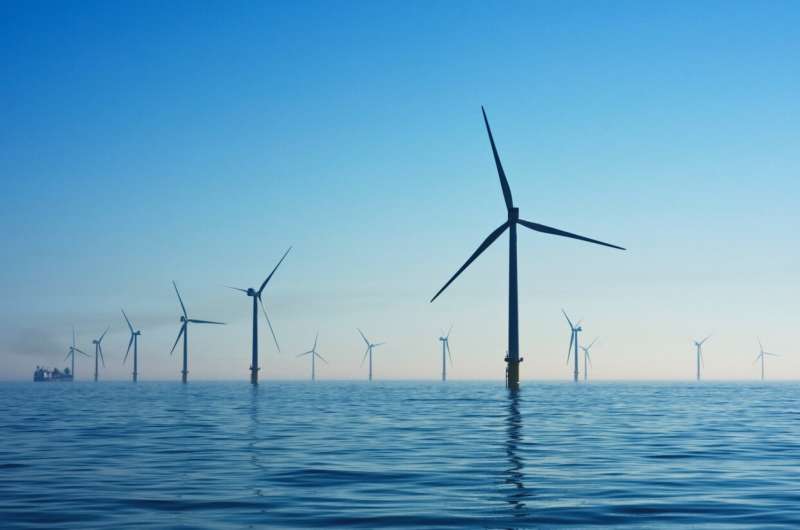How much green pressure do oil companies feel from financial markets?

Does one company’s transformation into a wind energy superpower signal a changing landscape for oil companies?
The world’s largest developer of offshore wind farms, Ørsted, was formerly known as DONG—Danish Oil and Natural Gas. Founded in the 1970s to develop and manage Denmark’s oil and natural gas resources, the company expanded into the electricity sector in the 2000s. The fuel of choice for most of that power was coal.
But times were changing. By the late 2000s, climate regulations in Denmark and the EU started to ramp up. Tremendous community opposition dogged the completion of a new coal-fired power station in Northern Germany. In 2009, DONG’s management took a bold step. They saw the world was heading in a new direction, and rather than swim against the current, they decided to be ready for a world in which green investments would pay off and brown investment would become stranded.
DONG’s “85/15” vision aspired to flip the company’s activities from 85% fossil to 85% green. In the following years, the company was renamed Ørsted (after Danish scientist Hans Christian Ørsted) and quickly became a superpower in wind energy.
It’s been called the “Tesla of offshore wind,” although CEO Mads Nipper still stops short of calling his company the first “clean energy supermajor,” despite a considerable annual investment in renewable energy—his ambition is to reach the investment budget of the traditional oil and gas supermajors—tens of billions of dollars per year.
Is Ørsted’s case a signpost of what is about to happen to other oil companies? Undoubtedly, they feel pressure from financial markets to change how they operate and what they invest in, but the answer is subtle and differs for each supermajor. Ørsted, of course, is a bit of a special case. The company was controlled by a stable and predictable government with strong climate ambitions, already had experience in offshore wind in the 2000s, and did not face much shareholder pressure even in the face of a radical change in strategy.
Independent oil companies (IOCs) face a different set of incentives and have reached a different set of conclusions—so far, at least. European IOCs, like BP and Shell, have started to invest significant amounts in low-carbon projects. In 2020, BP announced it wants to become carbon-neutral by 2050 and cut oil and gas production by 2030. Shell has bought electric vehicle charging companies and is an active player in offshore wind in the North Sea.
That said, a large majority of their investments are still in fossil fuels or other fuels with a non-zero carbon footprint. Fundamentally, though, European IOCs tend to see themselves as green supergiants several decades from now. They argue they have the size and financial strength, and the experience with massive infrastructure projects with many contractors and stakeholders, to be successful throughout the energy transition. They have a highly skilled workforce with transferable skills and strong government relations.
American IOCs such as Chevron and ExxonMobil are less bullish. They see themselves mostly as experts in the production and distribution of oil and natural gas products, with no clear competitive advantage in the electricity sector. While they might be better positioned for biofuels, carbon capture, and hydrogen, those are small and uncertain markets. Moreover, they argue, investors can diversify themselves and buy shares in specialized green energy companies.
This difference in philosophy can in part be explained by these companies’ home markets. European IOCs face more regulation, litigation, and pressures from investors and employees. European carbon markets and other climate policies keep getting tighter, and a Dutch court ruling held Shell “partially responsible” for climate change and ordered the company to reduce its carbon emissions. Have we finally reached a tipping point where BP and Shell will announce an Ørsted-style transformation?
Recent developments suggest the answer is “not yet.” When oil majors started announcing record profits earlier this year, BP responded that it needs to “help provide the energy the world needs,” and dialed back its target to reduce internal emissions from 35% to 20%–30% by 2030. Other companies also suggested that it will be hard to convince shareholders to give up on highly-profitable oil and gas investments.
This episode makes clear that investor pressure can go in different directions. There is mounting evidence that climate risks are priced into financial markets and investment decisions. But if, despite such perceived risks, the core business looks to be highly lucrative, there is also pressure on firms to stick with the status quo.
Climate risk for oil companies is mostly regulatory risk. Low-carbon policies can change the profitability of brown vs. green. If we truly want financial markets to push oil majors to become green superpowers sooner, there is no magic trick—we need more ambitious climate policies.
Citation:
How much green pressure do oil companies feel from financial markets? (2023, July 24)
retrieved 24 July 2023
from https://techxplore.com/news/2023-07-green-pressure-oil-companies-financial.html
This document is subject to copyright. Apart from any fair dealing for the purpose of private study or research, no
part may be reproduced without the written permission. The content is provided for information purposes only.
For all the latest Technology News Click Here
For the latest news and updates, follow us on Google News.
